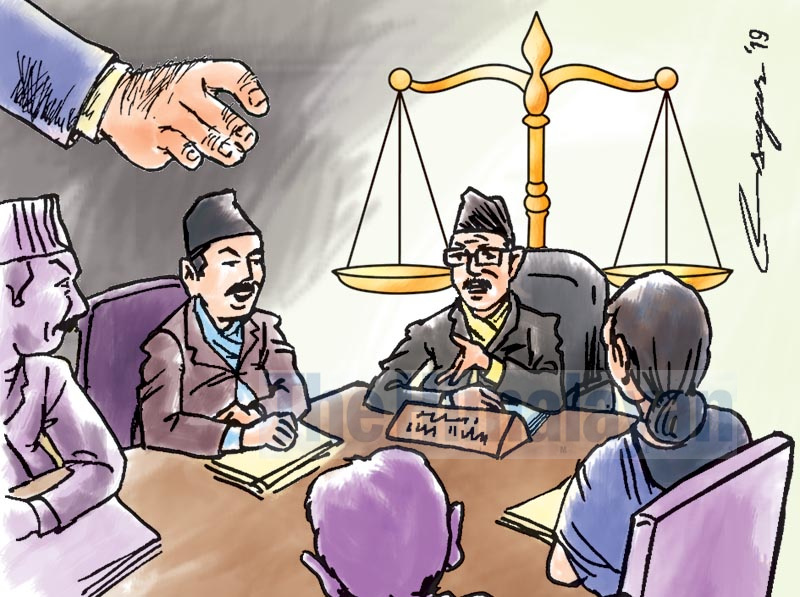Consultations held with stakeholders amid rift among victims
Kathmandu, January 13
The government today held consultations with all stakeholders of the decade-long Maoist conflict on Transitional Justice Act amendment in all seven provinces.
A group of divided victims’ community participated in the consultations while the other group protested terming it ‘hollow’.
As the consultations began simultaneously this morning in all seven provincial headquarters — Biratnagar, Janakpur, Hetauda, Pokhara, Butwal, Surkhet and Dhangadi — a group of victims organised under the Conflict Victims Common Platform gathered at the venues, and at Maitighar Mandala in Kathmandu, in protest.
Former CVCP chairperson Suman Adhikari said the consultations were done in a controlled environment where victims were not given enough time to share their concerns. The government had prepared a list of 13 matters on which victims’ views were sought.
“However, the victims were only given three hours,” said Adhikari. “This means, the government is holding the consultations in a ritualistic manner.”
The CVCP had also presented a memorandum to the government before the beginning of the consultations, expressing its reservation over the process and making suggestions. “However, the government does not want to listen to us,” said former CVCP chairperson Adhikari, adding, “That’s why we decided to protest.”
Adhikari said some of the CVCP members also spoke during the consultations to express their reservations, while others staged sit-in outside.
However, another group of conflict victims organised under the Conflict Victims National Alliance took part in the consultations, also participated by journalists, civil society members, Nepali Army, Nepal Police, and political party representatives, among others.
Adviser to CVNA Ram Kumar Bhandari said although the preparations for the consultations were lax, they decided to utilise the opportunity positively.
“The consultations at least reached provinces, and victims were able to put forth their concerns,” said Bhandari. “However, we are still watching how the government moves ahead and how the gathered inputs are reflected in the draft act amendment.”
After holding consultations in all seven provinces, the government now plans to hold a national consultation before finalising the draft act amendment.
Man Bahadur Aryal, joint secretary at the Ministry of Law, Justice and Parliamentary Affairs, said they would compile a report of province-level consultations in the next 10 days and fix a date for national consultations.
“If everything goes as planned, the government is set to table the amendment bill in the ongoing Bill Session of the Parliament,” said Aryal.
The government has intensified consultations with victims in line with its commitment to simultaneously take ahead both the processes of act amendment and appointments at the two transitional justice mechanisms — Truth and Reconciliation Commission and the Commission of Investigation on Enforced Disappeared Persons.
The government has maintained that the amendment will be done on the basis of six factors — the Comprehensive Peace Accord, Nepal’s national and international obligations related to human rights, fundamental principles of transitional justice, decisions and orders of the Supreme Court, sentiments of conflict victims, and Nepal’s legal and political processes.
The two commissions have remained vacant since their office bearers retired on April 13 last year. However, the process of new appointment has remained snail-paced. The committee formed to recommend new office bearers of the commissions has not been able to do so even 10 months after its formation, thanks to political intervention in the process.
The panel, however, has published a list of 61 prospective candidates.
The panel’s Spokesperson Sharmila Karki said they would make recommendation by the next week.






